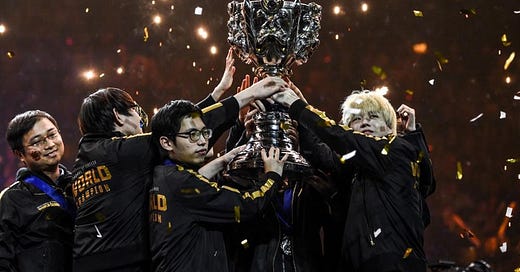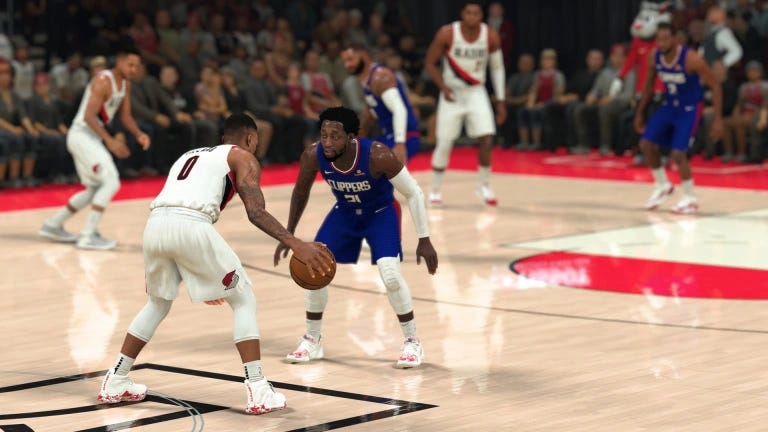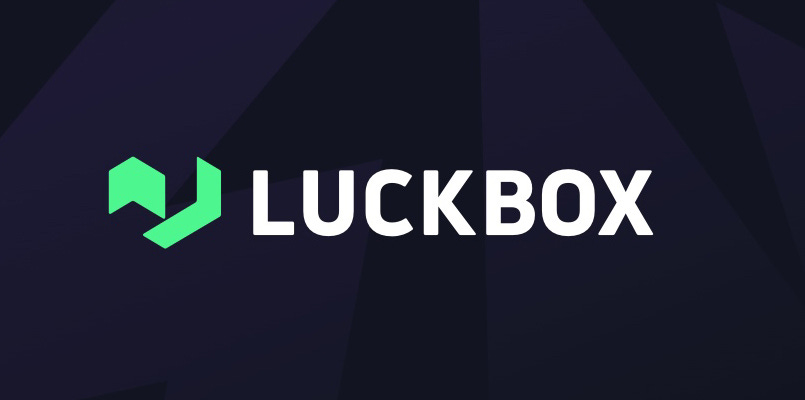Esports betting committee launches with former NJDGE executive
Sharpr is a weekly newsletter covering the intersection of esports and betting
Hi everyone, Cody here.
It’s been quite the busy week in the esports betting space with a significant amount of that activity coming from the U.S. specifically.
On par with our recent coverage of Nevada’s esports betting committee, the U.S. will now have yet another advisory group focused on developing this sector–this time with a 30-year veteran of the New Jersey Division of Gaming Enforcement.
Let’s dive right in.
In this week’s edition of Sharpr…
Esports betting committee launches with former NJDGE executive
NBA 2K publisher faces $5M lawsuit over loot boxes
Luckbox looks towards Canada, U.S. expansion
If this newsletter was forwarded to you, please consider subscribing.
Esports betting committee launches with former NJDGE executive
The Esports Trade Association–a Chicago-based organization for business leaders across the competitive gaming industry–has launched the Regulated Videogames and Esports Committee, an internal advisory group intended to “create best-practice guidelines and technical standards” for competitors, regulators, and bettors to “have confidence in the safe operation of video game and esports wagering.”
The RVEC is composed of members from the esports and gambling industries, including:
Eric Weiss, vice president of Odds On Compliance and a 30-year veteran of the New Jersey Division of Gaming Enforcement.
Anthony Gaud, CEO of G3 Esports and board member of the Greater Atlantic City Chamber.
Harry Jackson, partner at Fox Rothschild and law practitioner for casinos, internet gaming operators, and sports betting providers.
The committee–based largely in New Jersey where its founding members reside–will work across multiple disciplines such as integrity, regulatory framework, and technical solutions to “educate regulators, legislators, and other interested groups” and determine the best practices to grow esports betting nationwide, founder and chair of the newly-formed advisory group Anthony Gaud tells Sharpr.
“The primary motivation for establishing this group is to inform and educate interested parties about the benefits of the space, establish best practices while also finding solutions to the issues that still need to be resolved,” Gaud said. “Having two incredibly talented and experienced co-chairs in Eric Weiss and Harry Jackson establishes deep credibility when dealing with the complex regulatory and legal issues that govern wagering activities.”
On April 7, the committee will host an online, invite-only roundtable for regulators to discuss the esports betting market, potential concerns, and previously encountered issues or roadblocks. At the time of writing, individuals from 15 different state regulatory agencies are scheduled to attend the RVEC’s first roundtable meeting.
The roundtable meeting next month will serve as the first of many for the advisory committee, Gaud says. The RVEC will additionally develop and produce whitepapers on its discoveries at the intersection of esports and gambling, as well as generally serve as an accessible resource for regulators and legislators for navigating the emerging sector.
🦈 Sharpr Take: Does any of this seem to ring a bell? Well, it should; the RVEC isn’t the first advisory group to set up camp in the U.S. with intentions of fostering esports betting opportunities stateside.
On March 1, Nevada’s Esports Technical Advisory Committee took the stage in front of state regulators during its first public hearing at the Gaming Control Board’s offices to discuss key topics in the esports gambling panorama. One of its founding members and director of research at the University of Nevada, Las Vegas, International Gaming Institute Dr. Brett Abarbanel shared some of her takeaways from that meeting with us if you’re interested in learning more about it.
Abarbanel explained in our conversation that these sorts of advisory committees can benefit from one another through the exchange of information and knowledge sharing to ultimately educate regulatory agencies nationwide – and the introduction of the RVEC may be our first example of that.
One piece to note is that unlike ETAC, the RVEC does not have a direct affiliation to any state regulatory body. Although, as Abarbanel explained–and to very loosely paraphrase–these advisory groups don’t make the rules, they just help guide the horses to water. It’s unclear whether that direct connection will play a difference in what either committee is able to achieve in the long run, but one thing is for certain: the RVEC is a good thing for the esports betting industry.
NBA 2K publisher faces $5M lawsuit over loot boxes
Take-Two Interactive, publishers of the NBA 2K game series, is facing a class-action lawsuit filed on behalf of a minor and her guardian accusing the publisher of "unfair, deceptive and unlawful practices," surrounding the use of in-game loot boxes.
The complaint filed in Illinois alleges that NBA 2K’s loot boxes “psychologically distance” the player (particularly minors) from the financial nature of their spending through the use of virtual currency.
The plaintiff is requesting a minimum of $5M in damages from Take-Two.
In fiscal 2021, Take-Two recorded $3.1B in digitally-delivered net bookings–NBA 2K was one of its largest contributors to that figure.
Loot boxes–randomized in-game rewards in exchange for real-world money– have been an incredibly controversial subject in the gaming industry the last several years. The argument against loot boxes from critics has been rooted in its slot machine-like mechanics that resemble gambling, and in particular, the minors that play these games and ultimately purchase these items.
The lawsuit was initially filed on January 11 in Winnebago County Circuit Court before being removed to the Illinois Northern District Court, Western Division, on February 25. Take-Two has declined to comment on that matter to various publications attempting to inquire about the matter.
Luckbox looks towards Canada, U.S. expansion
Canadian esports betting platform Luckbox has outlined an expansion into Canada and the U.S. as key targets for the remainder of 2022. According to CEO Thomas Rosander, the operator is set to enter “a number of regulated markets” throughout the course of 2022 and noted that its home market of Canada is “first in line.”
“We’re a Canadian company, we’re listed on the Toronto Exchange, so it’s very important for us to be there and we’re looking forward to offering our products and games to the Canadian audience,” Rosander added.
In February, Canadian regulators announced online sports betting in Ontario would launch on April 4.
Esports operators Rivalry and Intema Solutions (owners of LOOT.BET) were both awarded bookmaking licenses by the Alcohol and Gaming Commission of Ontario to accept wagers in the state.
Gambling research firm Eilers & Krejcik estimates Ontario sportsbooks could generate up to $450M in sports betting revenue in 2022.
When asked about its approach for U.S.-based expansion, Rosander explained Luckbox has various means in which it may penetrate the market.
“There’s a lot of movement in [the U.S.] market right now and we are carefully deciding which states to go into and in what way,” he said. “It can be through a partnership and other business models.”
Rosander says the company is open to both obtaining U.S. licenses or partnering with licensed operators to activate stateside. He added the product and what it can offer the American audience will ultimately dictate the strategy it pursues.
🗞 In the news
Esports odds supplier Oddin.gg has announced a multiyear strategic partnership with Betway.
Peer-to-peer esports wagering platform Challenger has secured a seed investment round led by SeventySix Capital.
Real Luck Group appoints former PokerStars and Mr Green executive Bo Wänghammar to its board of directors.
Esports Entertainment Group has named Damian Mathews as its new Chief Financial Officer.
📈 By the numbers
The Call of Duty League’s first live event of the 2022 season in Arlington, Texas, set a franchise viewership record with approximately 186,000 concurrent viewers.







